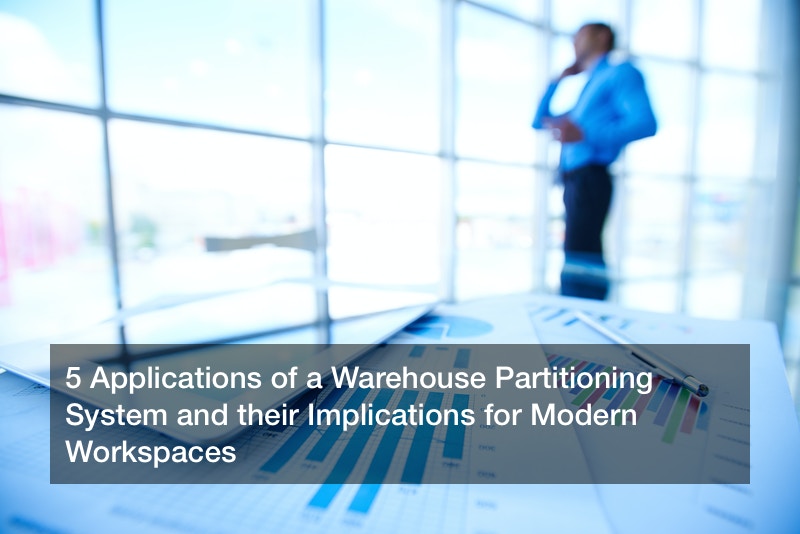
Industrial plants have to rethink their designs to meet numerous challenges from the shifting demands of the market. Overcoming those obstacles will require a new paradigm to inform the layout of the workplace.
One of the central features of in-plant modular offices is flexibility. It is easy to assemble, which makes the system an ideal option for industries as the market experiences unprecedented transformations. In this article, we’ll examine some applications of warehousing partitioning systems and the implications for the modern workplace.
1. Machine Protection
One advantage of warehousing partitioning systems is that deployment is scalable and fast. Since the prefabrication process ends in the factory, it speeds up installation by approximately 60 to 90%.
A mesh partition can act as a barrier to protect sensitive areas within the plant. In the age of robotics, warehousing partitioning systems can be useful in creating storage spaces for sensitive equipment. Many industries use mesh protection, which employs prefabricated panels that are sturdy and lightweight. Personnel can assemble the structure without much difficulty, which reduces time and labor costs for the organization.
2. Traffic Management
The flexibility of modular in-plant systems also makes them ideal for controlling human traffic. Industries can deploy prefabricated office walls to demarcate areas where staff may expect to find equipment. Operation managers may use portable walls to limit the intersections between heavy machinery and personnel.
3. Environmental Control
Warehouse partitioning systems can enhance environmental control efforts within the industrial plants. To develop quality goods, manufacturers may want to create spaces with humidity and temperature control. Related applications may include dry rooms, growth chambers, and incubators.
Another application of prefabricated office systems is in building cleanrooms for the pharmaceutical industry. The stringent requirements from ISO can make such rooms complicated to assemble.
But warehouse partitioning systems have a metal stud framing that makes it easier to relocate the office. Manufacturers can customize wall panels to meet the specific requirements and preferences of your staff. It is an affordable strategy for implementing workspaces that can maximize productivity.
4. Energy efficiency and Noise Pollution
Portable office walls can also improve the energy efficiency of the building. You can install a sliding or double swing doors to manage access to the building and reduce energy consumption. It is also possible to install a modular wall with soundproof features to block noises on busy industrial plants.
5. Tailored Solutions
The flexible nature of the workplace also needs a system that can meet the demands of a modern workforce. Warehouse partitioning systems offer a wide range of customizable options to address those needs.
There is also demand for workspaces with a conducive environment to promote work culture and motivate staff. There are different partitioning materials with many options for color, texture, pattern, and other aesthetic properties. For prefabricated office spaces, the selection may include custom tile and fine panel finishes.
You can find a wide variety of materials for partitioning the workspace. They range from steel to fiberglass materials for varying industrial requirements. You can work with in-plant office manufacturers to find components for storage, temperature control, and other applications.
As scientific developments continue to transform the world economy, warehousing partitioning systems offer viable solutions for industries. There are many options that you can customize to meet the requirements of modern facilities. The system is affordable and easy to assemble. For more on in-plant office buildings, visit our website today.

